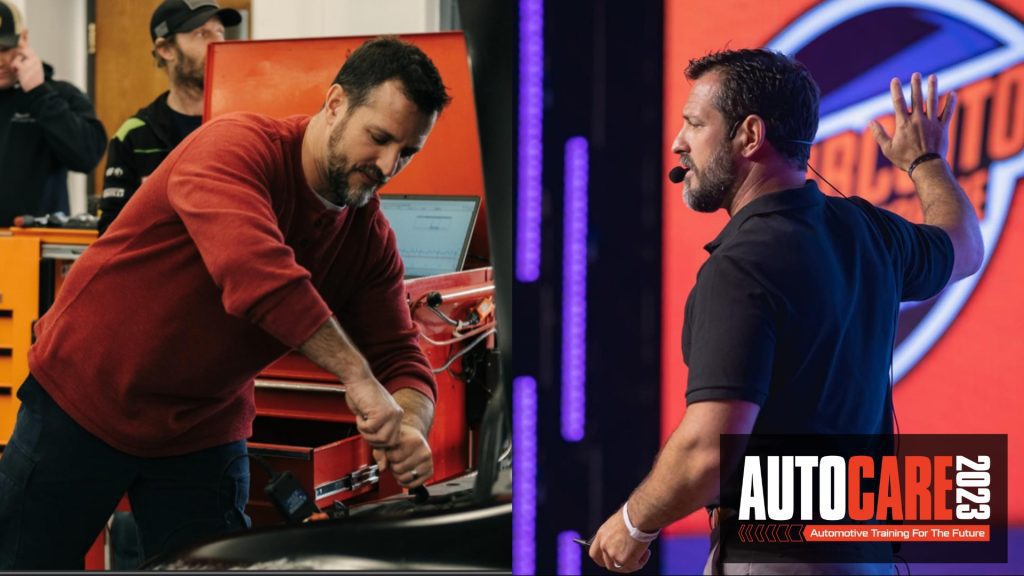Diagnose Any Issue By Mastering Three Vehicle Diagnosis Fundamentals
Brandon Steckler is one of the world’s leading vehicle diagnosis experts, a Master Technician, Technical Editor of Motor Age Magazine and Instructor with CarQuest and WorldPAC training institutes. Ahead of his appearance at Autocare 2023, Brandon talks about the diagnosis principles that make a difference in the workshop and why becoming friends with your local workshop competitors will benefit all parties.
How has diagnosis changed since you started your career?
I enjoy asking more experienced instructors if newer or older cars are harder to work on? And it’s a little bit of both. Newer cars are more compact, and there’s less room for access. However, the information available at our fingertips is a lot broader than in the past. So my diagnostic approach is always the same. What is the easiest thing for me to do? That depends on how the vehicle is built, if I can get my hands on it, and what systems it is comprised of. For instance, if I can get a hold of an ignition system with a distributor, it’s very easy to get waveforms from to analyze.
What are the diagnosis challenges technicians are facing on modern vehicles?
The challenges that technicians face really hasn’t changed much. From older to newer technologies, we need three basic things to be successful as technicians. One, fundamental knowledge that we acquire over years of working on cars, and through education. Two, having the right tools to properly evaluate a component or a system and knowing the limitations of those tools – not only what the tool can do, but also what it cannot do, is extremely important. And the third, equally as important as the other two, is having access to appropriate and accurate service information. Those are the three biggest challenges. If technicians can master those three, there’s nothing they can’t diagnose.
What are the fundamental diagnosis principles technicians should focus on learning more about?
Eighty five percent of vehicle issues can happen on all of them, no matter the year, make, or model. On the flip side, 15% of issues are related to how each manufacturer controls that component or that system. For instance an ignition coil makes spark the exact same way, no matter what car we are talking about because of the physics involved. How that ignition coil is controlled, is different. You might have a two wire coil that sets in a distributor, or a two wire, three wire, or a four wire coil over plug. We might use an optical pickup with a photocell, or an AC signal generator. Either way, that is how the manufacturer controls that system. But the system fundamentally works exactly the same on all cars. I want technicians to master the 85% because it applies to everything.
With a transition to EV and Hybrid taking place, how are U.S workshops thinking about this shift?
The diagnostic approach for EVs is exactly the same. Firstly, understand the system, how it works, and the components that make up that system via training and service information. We also need the specialised tools to evaluate these EV systems. This includes megohmmeters and milli-ohmmeters, safety equipment including PPE, and specific battery chargers and specialized vehicle hoists to remove batteries from EVs.
A technician’s mindset should be exactly the same as it’s always been. Don’t be fearful of the systems, be knowledgeable of the systems. For EVs, it’s a matter of investing in the future, whether it’s a technician seeking out training or a shop seeking out tooling and equipment. This will ensure they are equipped to service and maintain these vehicles.
Why is mastering advanced diagnosis so beneficial for technicians and in turn workshop owners?
Mastering advanced diagnostics is not something I want anyone to do. I know it sounds counter intuitive considering the event we’re going to be teaching at, but I want you to master the basics. Once you have that foundational training and knowledge second nature in your mind, advanced diagnostic capability will simply help increase efficiency. It will help you diagnose a problem more swiftly and you will take less components apart, so it’s less time consuming. It’s important to understand that without those basics mastered, the advanced techniques are not going to work. And if they do it’s only because you memorised it without truly understanding and that’s not the way I recommend you do it. Definitely master the basics, and the advanced techniques will be your icing on the cake.
Why is bringing technicians and workshop owners together at an event like Autocare so important?
Equally as important as gaining knowledge in the latest tooling, testing techniques and technology is forging relationships with likeminded people from across the nation, because knowledge begets new knowledge. And when we forge these relationships, we want to help one another. An example is the workshop across the street. They are not your enemy. Be friendly to that shop, assist them, loan them tools if needed, and reciprocate by borrowing a tool from that shop if needed. Order lunch for them one day so they come over and you can get to know each other better. Become allies. When you do that a dynamic occurs that is absolutely amazing, and everyone tends to learn together, raise the bar together, and that’s a great thing.
And the same theory applies for an event like Autocare. The more we help each other in this industry, the better off we will all be.
Autocare 2023 takes place 9 – 10 June at the Brisbane Convention & Exhibition Centre. Review the full training program schedules and secure your tickets to Autocare at www.autocare.org.au.

